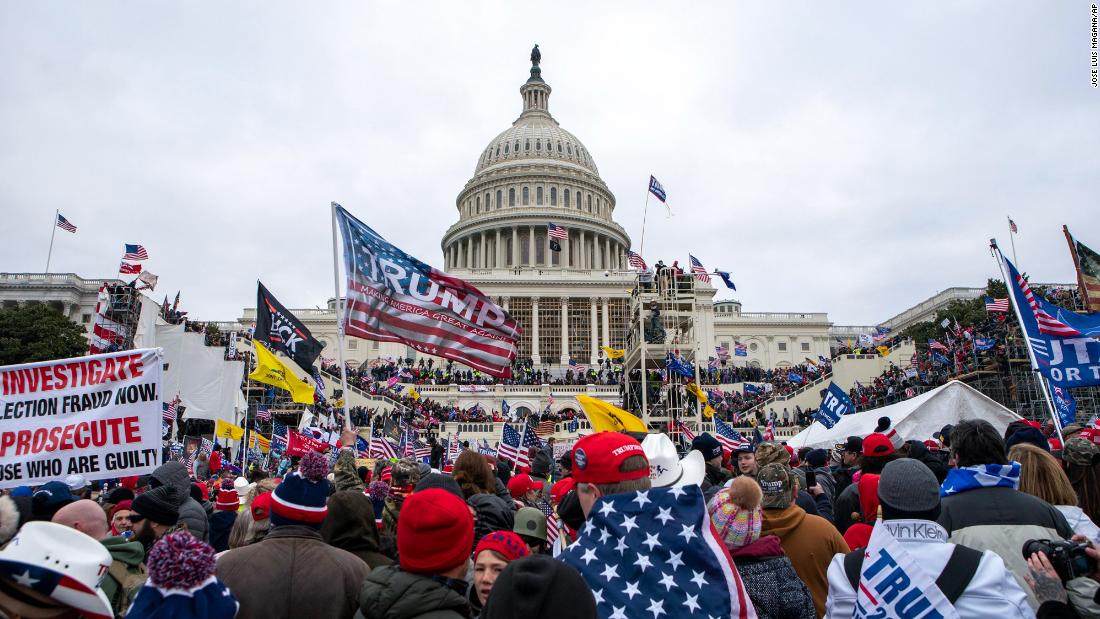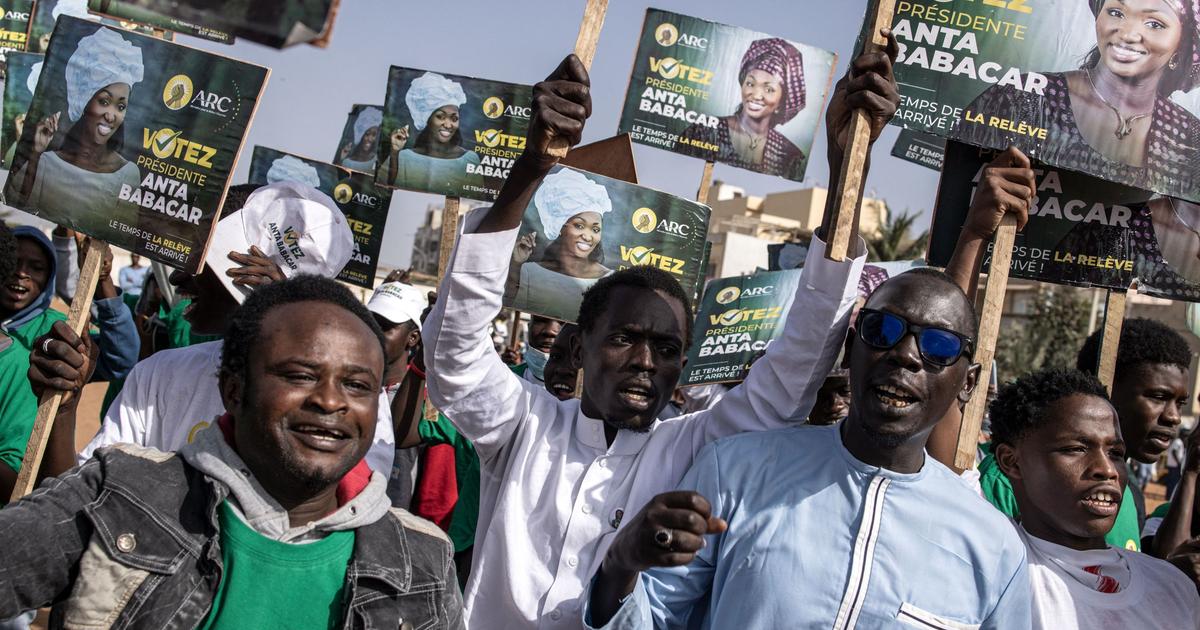Biden: Trump cares more about his bruised ego than our democracy 3:30
Editor's Note:
John Avlon is a political analyst and host for CNN.
The opinions expressed in this article belong to the author.
See more opinions on CNN.
(CNN) -
A year after the assault on the United States Capitol on January 6, the main conspirators in the attempted coup have not yet been brought to justice.
And just as the truth must proceed to reconciliation, legal responsibility and legislative objections must be imposed to defend our democracy from the next insurrection.
The vice chair of the Jan. 6 House Select Committee, Republican Liz Cheney of Wyoming, noted that there are several "potential criminal statutes in question here" and "absolutely no doubt that it was a dereliction of duty" by part of former President Donald Trump.
But what exactly does that mean?
OPINION |
A year after the assault on the Capitol: Trump's lies were enough
"Abandonment of duty" is a term taken from the Uniform Code of Military Justice, but it could be applied to the fact that Trump has not "faithfully executed" his oath of office: "to preserve, protect and defend the Constitution of the United States."
More specifically, Trump could be charged with breaking the Constitution in the form of Section 3 of the 14th Amendment.
Passed in the wake of the Civil War, it was specifically designed to prohibit people who have sworn to uphold the Constitution - and who have later participated in an insurrection against the United States - from holding elected or appointed office.
Although subject to unavoidable legal challenges, this could prevent Trump from running for president again, given that a majority in Congress voted for his second impeachment on charges of incitement to insurrection (although he was ultimately not convicted). It could also apply to any member of Congress found to have coordinated with the agitators, as Republican Rep. Adam Kinzinger of Illinois stated to my wife Margaret Hoover on his PBS show "Firing Line."
The 14th Amendment is a constitutional prohibition - not a criminal sanction - but it did not have to be limited to the Civil War of 1860. As one US senator explained at the time, "Being a permanent provision of the Constitution, it is intended to function as a prevention of treason henceforth ... a measure of self-defense ".
And as University of Maryland law professor Mark Graber, a 14th Amendment scholar, told me: "From a constitutional perspective, there is no difference between trying to override an election through fraud, force, or violence: all of them fall into the category of insurrection. "
As Cheney suggested, there are also specific criminal statutes that could apply to agitators, if the Justice Department decides to prosecute them.
The big lies about the assault on the Capitol on January 6 3:21
For example, there is already a criminal sanction for insurrection in the records, which states: "Whoever incites, starts, helps or participates in any rebellion or insurrection against the authority of the United States or its laws, or provides help or consolation for it ... will be unable to hold any position in the United States. "
Note that this specifically covers who "incites" or "helps" an insurrection.
There is also a separate criminal statute that covers seditious conspiracy.
And it could be argued that Trump's past and present attempts to cash in on the "Big Lie" constitute a conspiracy to defraud the United States.
This law is typically considered to apply to financial fraud against the US government.
But that's just one of its intended applications.
In a 1924 opinion, Supreme Court Justice William Howard Taft explained that "it also means to interfere with or obstruct one of his legitimate governmental functions by deceit, cunning or trickery, or at least by dishonest means."
An ongoing attempt to defraud our democracy by a former president would certainly seem to qualify.
It is true that these criminal statutes are rarely invoked by prosecutors, although insurrection attempts rarely occur in the United States.
And these laws exist for a reason.
We must use the tools that we were given.
Justice Secretary Merrick Garland promised "to defend our democratic institutions from attacks" and that the actions taken so far "will not be the last."
But, even if the Justice Department decides not to impeach all the agitators in a naive attempt to return to normalcy, there are still legislative remedies that Congress can do to tighten the railings of our democracy.
Attorney General vows to bring those responsible for the assault on Capitol to justice
The best ones, such as strengthening the right to vote and halting electoral subversion efforts in the states, appear doomed by Republican filibustering.
Even Biden-backed commonsense efforts to reform filibustering by reverting to its traditional requirement that opposing senators actually speak in plenary seem unlikely.
Ultimately, changing the violent undemocratic impulses in our politics requires changing the incentive structure of our politics, which means having more competitive general elections through redistricting reform that encourages politicians to try. to persuade the reasonable part of the opposition instead of playing solely with the base.
But, apart from that, there are two broad substantive reforms - which have received some bipartisan support - and which could be approved by this Congress.
The first is an arrangement of the Electoral Recount Act of 1887 to protect it from electoral subversion efforts.
This is the ambiguously worded Reconstruction-era law that Trump's legal team tried to use and abuse to override the will of the voters.
It's time to fix this hot mess by clarifying the vice president's role in certifying the election as a mere civil servant, restricting the ability of states to submit alternative lists of voters, and expanding the threshold for contesting voters so that the will to vote. voters are not usurped by a handful of hyperpartisans in Congress.
The good news is that it already has cross-cutting appeal, endorsed by scholars from center-right think tanks like the American Enterprise Institute and the libertarian Cato Institute, as well as Republican election law guru Ben Ginsberg in the National Review.
Even the Republican leader of the Senate, Mitch McConnell, was open to this reform.
The second fundamental issue is the reform of the social media algorithms that have contributed to our nation going collectively insane in recent years, by elevating the most extreme, combative and conspiratorial voices above the real information.
Is the adolescent brain ready for social networks?
A psychiatrist responds
Although Republicans and Democrats want social media reform for very different reasons, there are at least two bipartisan bills that propose modest measures to fix our addiction to socially destructive algorithms. The "Bubble Filter" Transparency Act, endorsed by conservatives and liberals in the House of Representatives and the Senate, would give people the ability to opt out of algorithms that target them based on personal information.
Another bipartisan bill in the Senate would impose transparency on social media companies by requiring them to disclose data from internal algorithms to independent researchers vetted by the National Science Foundation.
This would give the public much more information about how our information is used.
These legislative remedies are not silver bullets.
They would not begin to solve everything that ails our democracy.
But they are, literally, the least this Congress can do: strong measures with demonstrated bipartisan support.
Doing nothing is by far the most dangerous option.
One year after the January 6 assault, we should all know that we cannot take our democracy for granted.
Basic barriers must be reinforced.
We have to apply the law - fairly but without cowering - because the agitators only respect force, and without strict accountability we will only invite future insurrections.
We have to be at least as determined to defend our democracy as Trump and his henchmen were in trying to destroy it.
Assault on the Capitol



/cloudfront-eu-central-1.images.arcpublishing.com/prisa/OV2VBR4SENF6HBYT4PL7REJMVU.jpg)




